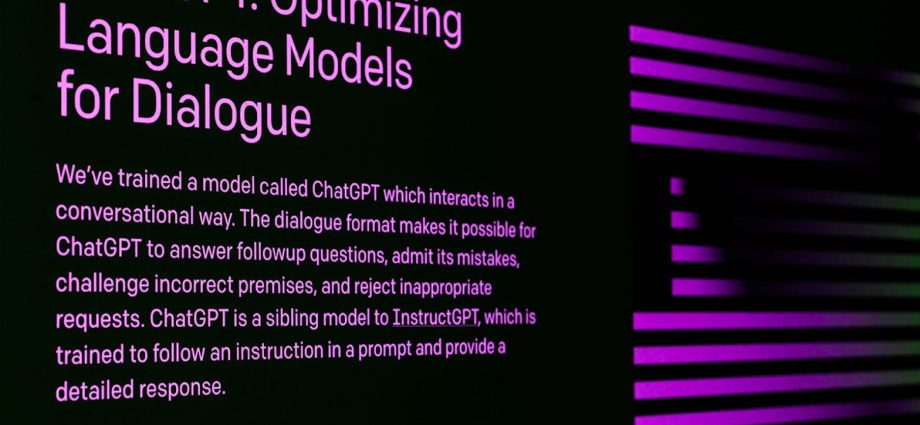In 2023, the EU Parliament debated the Artificial Intelligence (AI) Act, China publicly commented on draft generative AI rules and US industry leaders — including OpenAI CEO Sam Altman — called for robust AI regulation.
The European Union, China and the United States may set the benchmarks for AI governance but Asia’s middle powers could shape a regulatory framework that benefits them. Asia’s middle powers should coordinate their efforts through an AI governance center of excellence.
Given the speed of technological change in AI and the strategic significance of the digital economy to intra-regional trade in Asia, the exchange of regulatory best practices and challenges among countries in the region is critical to formulating beneficial AI regulations.
Multilateral agreements — including the Regional Comprehensive Economic Partnership and the Comprehensive and Progressive Agreement for Trans-Pacific Partnership — include provisions on e-commerce, data transfer and cybersecurity issues.
But the gap in AI governance underscores the need for an AI governance forum within a framework of Asian digital governance.
There is little practical alignment on AI governance throughout Asia. According to Oxford Insights’ 2022 Government AI Readiness Index, Asia has both leaders and laggards in AI regulatory governance.
Singapore ranks at the top for AI governance based on benchmarks such as a national AI strategy, ethics principles and data privacy and cybersecurity laws. South Korea, Japan and Australia also score highly. But China, Taiwan, Malaysia, Thailand and Indonesia score lower, with the Philippines, New Zealand and Vietnam at even lower tiers.
Examining the state of play on AI governance for some Asian countries provides insight into the potential value of AI governance collaboration among Asia’s diverse economies.
Singapore has adopted an industry-friendly approach and is not yet pursuing comprehensive legislation. Singapore provides a practical AI ethics toolkit for industry.
In June 2023, Singapore’s privacy regulatory body, the Personal Data Protection Commission and the Infocomm Media Development Authority led efforts to incubate and launch AI Verify. AI Verify is an independent non-profit offering industry-driven evaluation and testing of explainable, transparent, fair and human-centric AI systems.

Australia’s Department of Industry, Science and Resources issued a discussion paper in June 2023 on safe and responsible AI, focusing on governance mechanisms to ensure AI is developed and used safely and responsibly.
The report highlights the constellation of regulations relevant to AI in Australia, including data protection and privacy, consumer protection, competition, copyright, online safety and discrimination laws.
Vietnam, though, provides a snapshot of where many Asian countries currently stand on AI regulation. Vietnam’s national AI strategy sets explicit numerical goals, including the number of AI centers and businesses to be established within a certain year. The strategy mandates the creation of AI laws and regulations by 2027. Yet no draft regulations are available publicly.
The AI governance efforts in Thailand and New Zealand highlight the questions that many Asian governments need to confront.
Thailand’s draft Royal Decree regulating AI raises concerns about the extraterritorial application of their domestic AI regulations. The Thai decree would require a global AI service provider to register or appoint a local representative in Thailand when providing services to Thai users.
New Zealand offers another perspective on AI regulation, with explicit mention of indigenous rights. Its Algorithm charter acknowledges questions on indigenous rights in AI, including Maori data sovereignty.
Asian regulatory trends are not entirely moving in a straight line, with some governments moving in different directions from previous policies.
In 2018, Japan amended its copyright laws to be friendlier to AI development, allowing a fair-use exception to copyright infringement for AI training data. But Japan’s Prime Minister Fumio Kishida recently suggested a review of such copyright issues at a meeting of Japan’s Strategic Council on Intellectual Property. A more restrictive regulatory stance may be coming.
Indian regulators have shown a change in attitude too. In April 2023, the Ministry of Electronics and Information Technology stated it did not intend to issue legislation. But in May 2023, India’s Minister of Electronics and Information Technology Ashwini Vaishnaw indicated that regulations will be coming.
Regional policymakers should initiate the process of coordination and sharing best practices sooner rather than later.
Initiatives in issue areas of privacy and data transfer offer a template, including the Asia-Pacific Economic Cooperation’s Cross-Border Privacy Rules or the World Economic Forum’s concept of Data Free Flow with Trust.
The OECD has staked out the AI regulatory issue and provides valuable resources for it globally — but by its design, discussions there may reinforce the digital divide. ASEAN has also indicated that it will develop an AI guide for its 10 member states.
A center of excellence bringing all aspects of AI governance discussion across Asia together in one forum would provide an opportunity to comprehensively examine and develop regulations in concert with, and complementary to, the domestic regulatory settings of each country.
AI regulation will form part of broader digital governance issues going beyond privacy, data protection, cybersecurity or intellectual property.
Building awareness, sharing best practices and forming consensus points for AI governance advocacy are essential to ensure the views of stakeholders outside the European Union, United States and China are represented in Asia and globally.
Seth Hays is a lawyer and Managing Director of APAC GATES, Taipei.
This article was originally published by East Asia Forum and is republished under a Creative Commons license.

